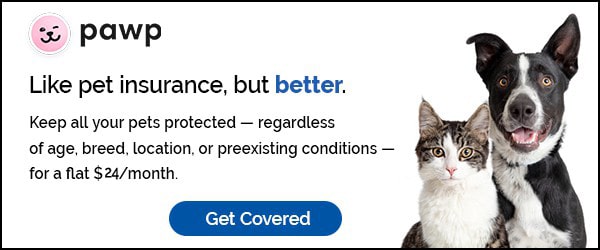“This post contains affiliate links, and I will be compensated if you make a purchase after clicking on my links.”
It’s the most wonderful time of the year, and if you ask any dog owner, it’s even better if you have a four-legged companion at your side. That’s one reason why many families consider purchasing or adopting a puppy as a gift during the holiday season. Whose heart wouldn’t warm to watch their child on Christmas morning hugging an adorable, wriggling puppy in her arms?
Today, it’s easy to go online and shop for the puppy of your dreams. Every breed of dog, including designer dogs, are available from a variety of sources such as registered breeders’ websites and through private sales.
Unfortunately, for every legitimate pet sale online, multiple scammers are waiting to take advantage of unsuspecting buyers who are emotionally vulnerable. By using “lookalike” sites, cute pictures, low prices, heartbreaking stories, and fraudulent sponsored search links, pet sales scammers often walk away with lots of money while you end up without a puppy. Avoid falling victim pet scams by following these steps.

1. Do your research.
You can outwit a scammer by researching the puppy for sale and the person or business doing the selling. First, you can detect a scam by searching the internet for the picture of the puppy you want. If you find that picture on other websites, then you may be dealing with a scam artist. Ask the seller for multiple images of the dog in question, including photos where the puppy is posing with specific items, like a toy, tennis ball, or a recent newspaper. Any seller who refuses to provide these photos is probably trying to fool you.
Additionally, research the seller’s name and contact information, including their email address. Use a search engine and pair the name with search terms like “scam,” “fraud,” and “complaint.” Sellers with less than reputable reputations may have warnings about them online. If possible, work with local or national sellers and avoid dealing with breeders or sellers located outside of the country. It is much harder to register complaints and recover your money if the scammer is overseas.
2. Get a sales contract in writing.
A reliable seller will provide a sales contract that clearly outlines the parameters of the transaction, including information about the puppy’s medical background and any policies concerning returning the dog if the buyer changes his mind. Beware of sellers who refuse to provide paperwork or anyone who asks you to send money right away without receiving your goods, i.e., the puppy. Some scammers will claim that they are moving and need to rehome the dog immediately or that the dog is in danger and will bring the dog when they move. Often, these frauds are working to separate you from your money as quickly as possible.

3. Ask for veterinary references.
An established breeder or a person selling their dog will provide a record of check-ups or medical procedures from their veterinary clinic to the dog’s new owner. Don’t trust any seller who doesn’t have records of their puppy’s medical care or is unwilling to share them with you. If a seller gives you the name of a veterinary clinic, make sure you call and speak with a representative to verify the dog is real and has been cared for regularly.
Sadly, scammers who don’t have dogs to sell will not have veterinary records from legitimate clinics. Even worse, some backyard breeders who run puppy mills will sell puppies who have had no medical care at all, meaning they are likely to suffer a multitude of health issues that will cost you money in veterinary bills. Always ask for records, and if the seller refuses, walk away from the deal.
4. Don’t buy from Craigslist or Facebook.
If you choose to adopt a pet advertised on social media, only do so through verified breeders or rescues’ accounts. Although plenty of dogs are for sale on sites like Facebook and Craigslist, more often than not, those puppies are not real or are not the type of dog the seller claims. You can quickly get embroiled in a scam that leaves you with no dog or a dog that wasn’t what you expected.
Additionally, buyers who want a purebred puppy should shy away from anyone advertising on the internet. Reputable breeders don’t need to sell their dogs on social media sites; they typically have a waiting list and don’t need to search for buyers.

5. Don’t pay in cash or with gift cards.
Most scammers will demand payment in cash via Western Union or other wire transfer services. This way, they can receive your money and take off, leaving no paper or digital trail. The current trend is for scammers to ask the victim to purchase a gift card at large retail outlets such as Walmart or Target, then give the card number to the scammer, who promptly spends it.
Always use a credit card when purchasing your puppy so you have the means to dispute the charges. Keep a record of your statements, and reach out to your card company for assistance in dealing with unlawful transactions.
6. Insist on a meet and greet.
For buyers purchasing their puppy locally, ask the seller for a meet and greet before you agree to buy. A legitimate breeder or seller willingly allows buyers to meet their dogs, view their living quarters, and examine the dog’s nature and well-being. Healthy, happy puppies will have plenty of space, will be social, clean, and lively, and depending on age, ready for housebreaking. A seller who refuses to let you see or interact with the dog before the sale is someone you should avoid.
7. Refuse to pay “additional” fees.
Aside from the dog’s sale price, no reputable breeder or seller will continually ask for additional fees. Scammers will string some victims along to get as much money from them as they can. Some con artists will charge “additional” fees for pet insurance, travel expenses, food, a new crate, or veterinary costs. Steer clear of any seller or breeder who tries to charge you more fees for these “services.”
8. Adopt from a rescue or shelter.
It can sometimes be challenging to find the perfect gift for a loved one during the holidays. You have to take into account that person’s interests and lifestyle. Are you buying a pupper for a hiker and outdoorswoman? If so, the best place to find a new pet might be from a local rescue or animal shelter. These organizations have dogs available to meet whose backgrounds and temperaments are known to volunteers.
Adoption fees are reasonable, and you will always have a contact point if any questions or issues arise. By adopting a puppy, you are not only giving that dog a chance at a happy life; you are also opening up a new spot for another dog in need.
Enjoy your holiday season this year by taking the time to find the best canine for your family, and avoiding people who want to take advantage of you. Be smart, ask questions, and avoid the unnecessary heartbreak associated with pet scams.
Jori Hamilton is a writer from the pacific northwest. You can follow her on twitter @HamiltonJori and see more of her work at writerjorihamilton.contently.com.






















